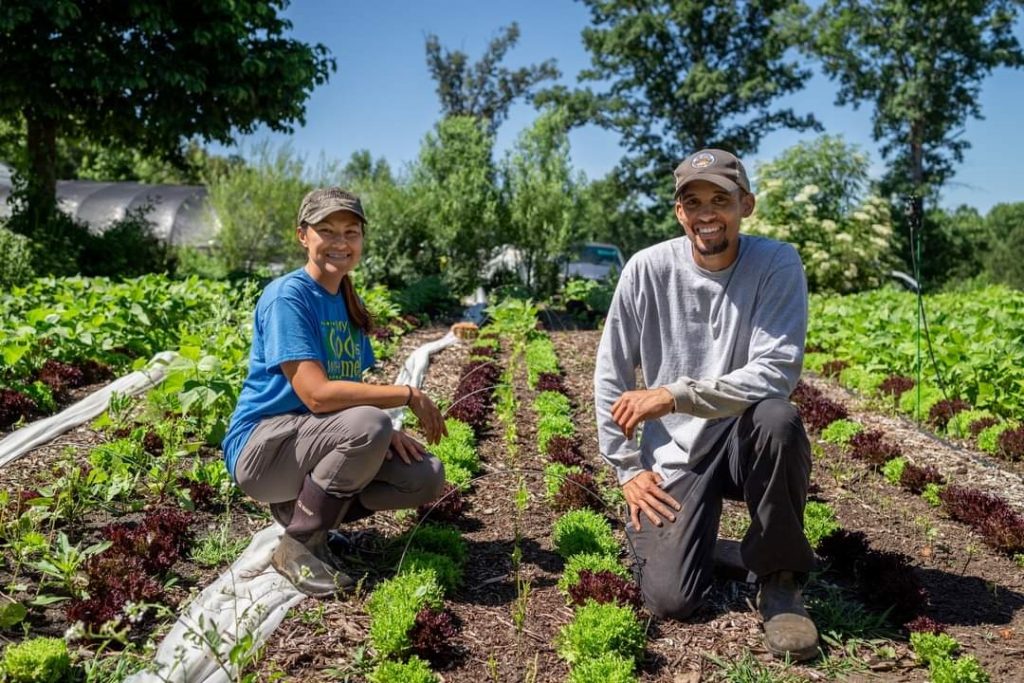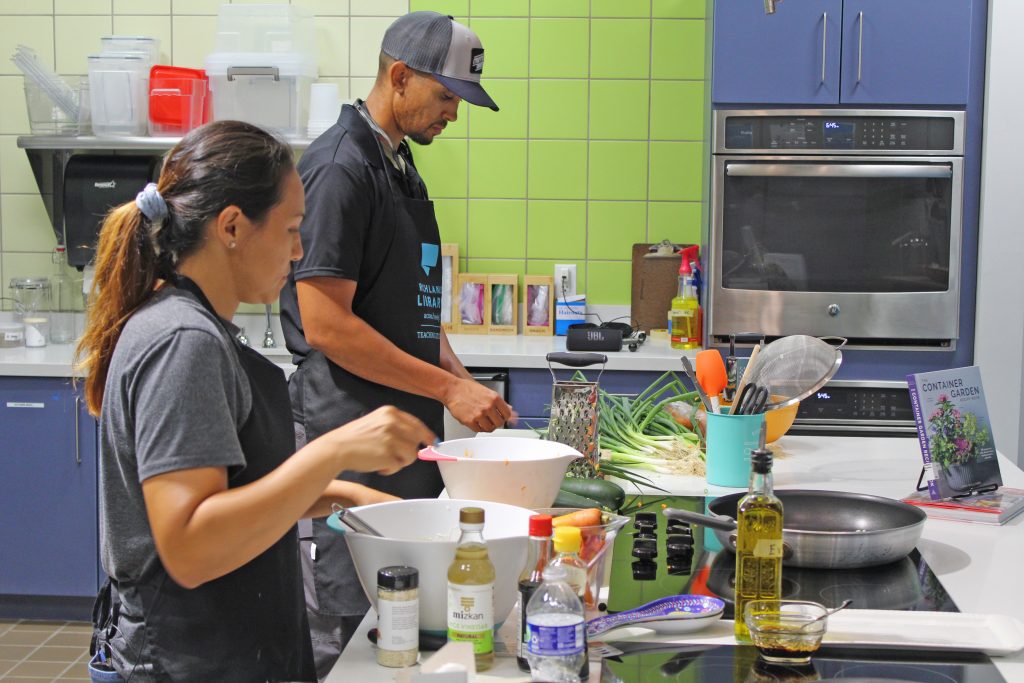
COLUMBIA – There were about 50 people in attendance at the Richland County Main Library program June 17, says Kim Samuels – but her vegetables were the guests of honor.
The people in the audience came to watch a cooking demonstration of local produce from Bushels and Bags Farm in Ridgeway, which Kim runs with her husband, Lance. It was an event coordinated by a local chef to feature how locally sourced ingredients can be transformed into culinary creations.
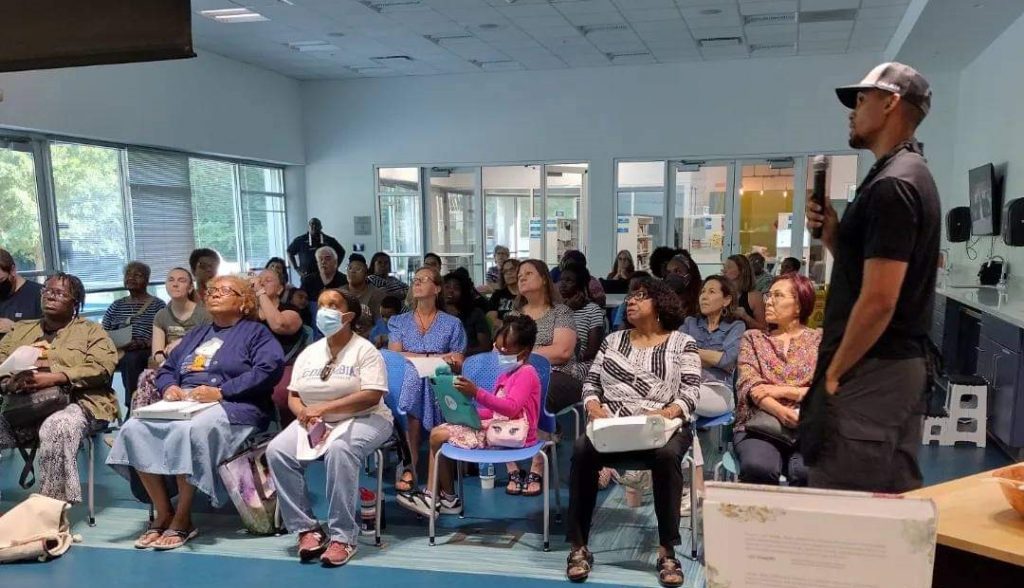
First, her husband gave a power point presentation about their certified naturally grown produce (grown without pesticides or herbicides), she says, and then she did something she hadn’t done before: cooked in front of a crowd, combining fresh veggies from the Samuels farm with minimal store-bought ingredients to make Korean pancakes.
“It’s a savory dish, so I used zucchini, carrots, and spring onions plus flour and water. That’s it, super simple …we added salt, pepper, and garlic powder,” she says. “Everyone loved it and came back for seconds and thirds.”
Kim Samuels said that was one more validation for what they’re doing on their vegetable farm. She says the interest in locally and naturally grown produce is growing as more and more people are trending toward healthy eating.
“For both flavor and nutrients,” she says, “fresh is best.”
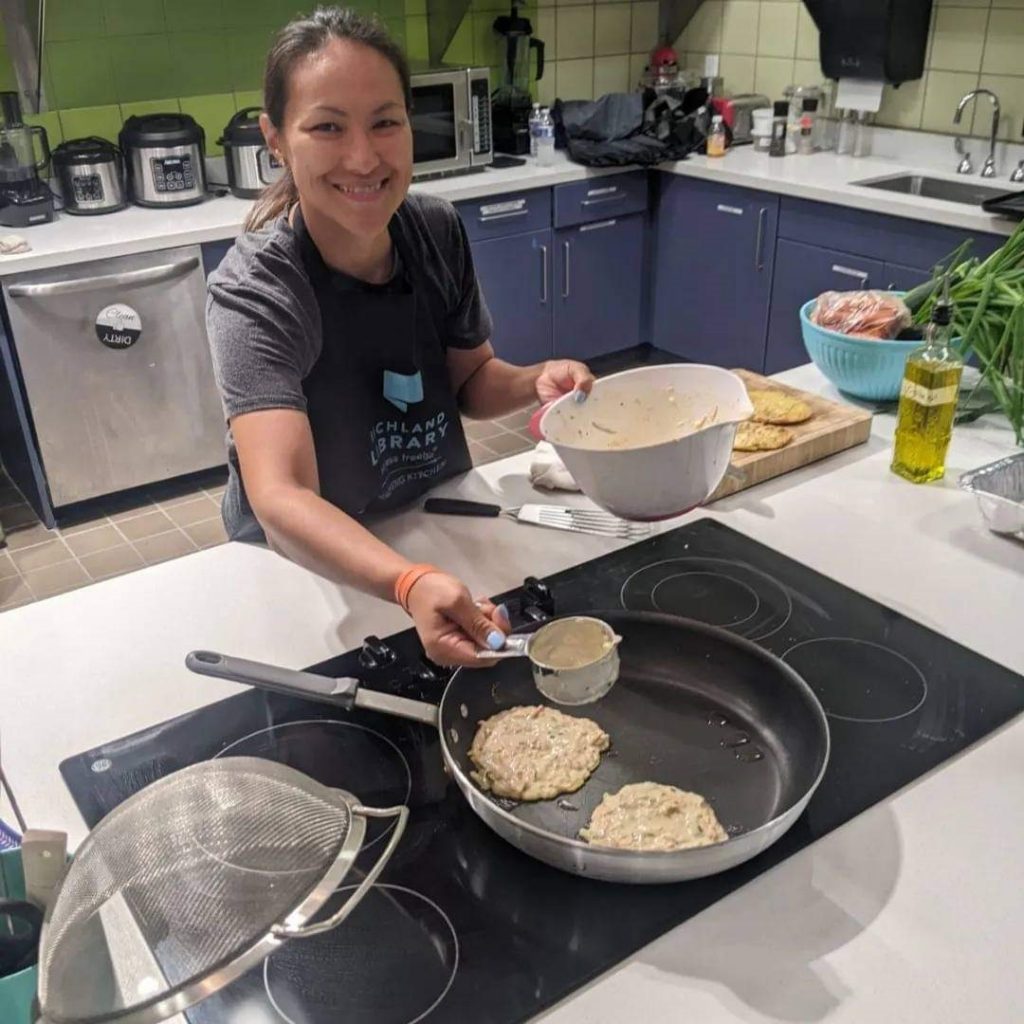
“Our journey into farming started when we both – my wife and I – became certified personal trainers,” Lance Samuels says, “and what we were learning as we went through the personal training program and then fitness in general, is that people can exercise all they want, but if they don’t have the right nutrition, it doesn’t matter.”
They started a vegetable garden, he says, with a desire to grow healthy food for themselves and their four kids Eli, now 15; Josiah, 14; Naomi, 8; and Ezra,7.
Lance – who Kim credits with being the mastermind behind the farm – says it took him half a dozen years of study, from taking classes on soil biology to reading up on European farming methods, to reach the point where he felt ready to launch the farm.
The Samuels’ journey from the Columbia suburbs to small-scale farming in rural Fairfield County was a process: a study undertaken, a risk leapt into, and a dream realized.
The Samuels say the key to it all was something a lot of people – at the time – hadn’t even heard of: microgreens.
Microgreens, Kim explains, are small, young vegetable plants grown in such a way as to be snackable or usable in salads, packed with the same nutrients that would typically be contained in their mature form.
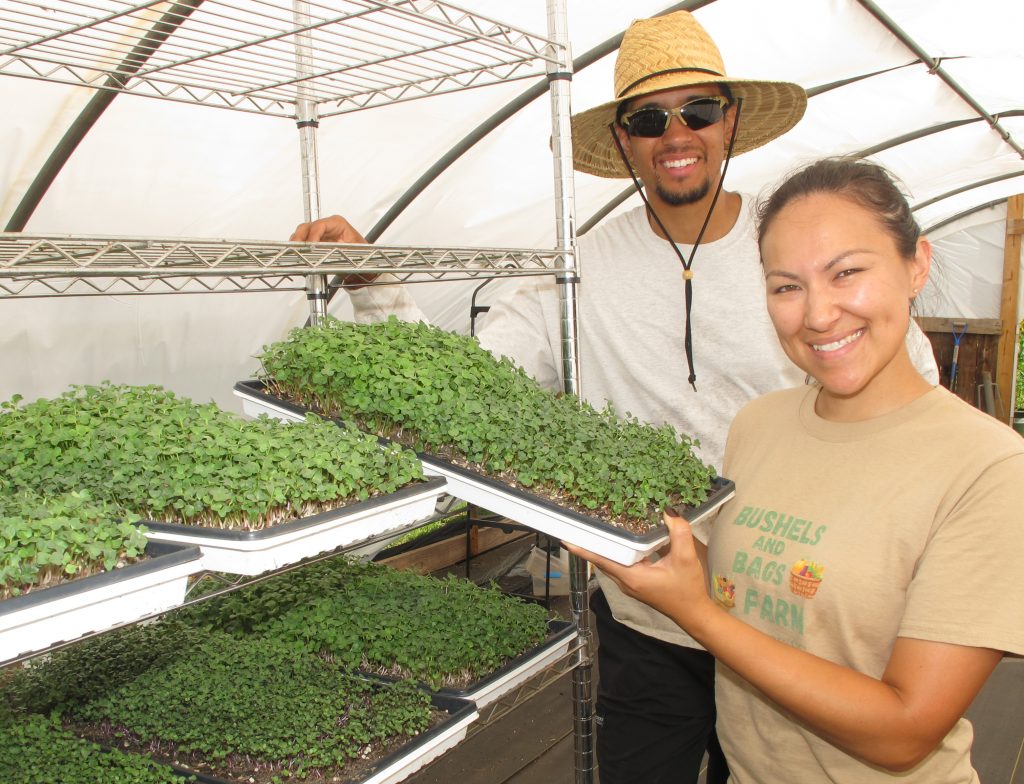
“Microgreens are really just the small version of the larger plants, just the seedling version…. It’s the same plant that you would harvest at a later stage; we just grow it to that seedling stage and harvest it earlier because it’s much more nutrient-dense,” Lance says.
Often used as garnishes, to top off meals, or in healthful smoothies, microgreens have taken off in the last decade or so as a superfood.
And the numbers are eye-popping: A microgreen broccoli plant, for example – something tiny that you can eat in just a bite or two – contains 40 percent more vitamins than an entire head of broccoli.
“It would be tough to eat enough broccoli to match its nutrients,” Lance says, “especially for someone who’s not already a veggie fan. If you’re looking for a lifehack to eat your vegetables, microgreens could be it.
“But microgreens can be a bit finicky – factors like soil, humidity, light, and watering conditions have to be just right to get them to grow properly,” he says.
Growing microgreens was so successful for the Samuels that the farm quickly evolved from gardening for the family to a profit-making enterprise, endeavoring to provide healthy food not just for themselves, but for the community as well.
Besides microgreens, they now also grow seasonal produce. In the summer, that means vegetables including zucchini, peppers, tomatoes, cucumbers, and green beans; in the winter, it means root crops like carrots and beets as well as leafy greens like spinach, lettuce, and kale.
For Lance, the whole philosophy and process behind how the farm operates – from the microgreens to the regular vegetables – is based on sustainable farming principles that combine the new with the ancient.
For example, they practice no-till farming, which is just what it sounds like. After initially breaking the ground once to remove rocks and other debris, they never till the soil again.
They use plastic to kill weeds the first year – and after that, he says, the weeds aren’t as much of an issue. They crop year-round, thanks to South Carolina’s mild climate, and plant cover crops in between rotations. They also put down compost annually – all things that help with weed control.
They also plant compatible plants together in the same beds, an ancient practice that’s not compatible with modern farming equipment and large-scale production but is highly compatible with small-scale farming.
These methods are catching on, he says, because of concerns about the impact of soil erosion and to avoid the use of chemicals in agriculture.
The only piece of equipment they use in their crop beds, he says, is a walk-behind tractor – a machine that looks similar to a garden tiller but is not used to turn over the soil. The idea is that by avoiding the soil compaction caused by larger tractors, for example, the roots have more space to grow and the rainfall soaks more fully into the ground.
As their business has grown, the Samuels now sell their vegetables at several area farmers’ markets: the Camden Market on Saturdays from 9 – 12 and the Sandhills Market on Tuesday from 2:30 – 6:30 p.m. The markets also serve as pick up points for their CSA (community-supported agriculture) subscription customers to pick up their weekly supply of fresh local veggies. The subscriptions can be purchased for 8 to 12 weeks of vegetables.
The Samuels also sell their produce to restaurants as well.
Their farm business has become the lifestyle for their family.
“All the kids help with harvesting,” Kim says. “And it works just fine because the whole family is working together.”
Now in their fourth year earning their primary income from the crops they produce on their land just outside Ridgeway, they’re continuing to expand as they embrace the joy they get from knowing that they are not only feeding their family nutritously, but that there is a growing interest in the community toward healthy eating.
For more information about the Samuels’ vegetable farm in Ridgeway (including how to subscribe to weekly fresh garden produce, visit Bushelsandbagsfarm.com, call (803) 338-6316, or send an e-mail to [email protected].
